Now that virtual and mixed reality feel like they’ve reached their limit in terms of immersion – enter the Razer Freyja, which is such a genius idea, but I’m equally shocked how quickly it went from a pipedream CES product to on the shelf, and it works extremely well.
They Freyja cushion goes over any chair (it’s designed to work with most). Obviously it fits perfectly on any of the Razer chairs, but it has 2-3 straps that can be loosened and tightened to work with any standard high-back chairs. I’m not sure if this is by design, but I noticed a huge improvement in comfort and cushion-ability with the Freyja as well, as it’s nicely padded.
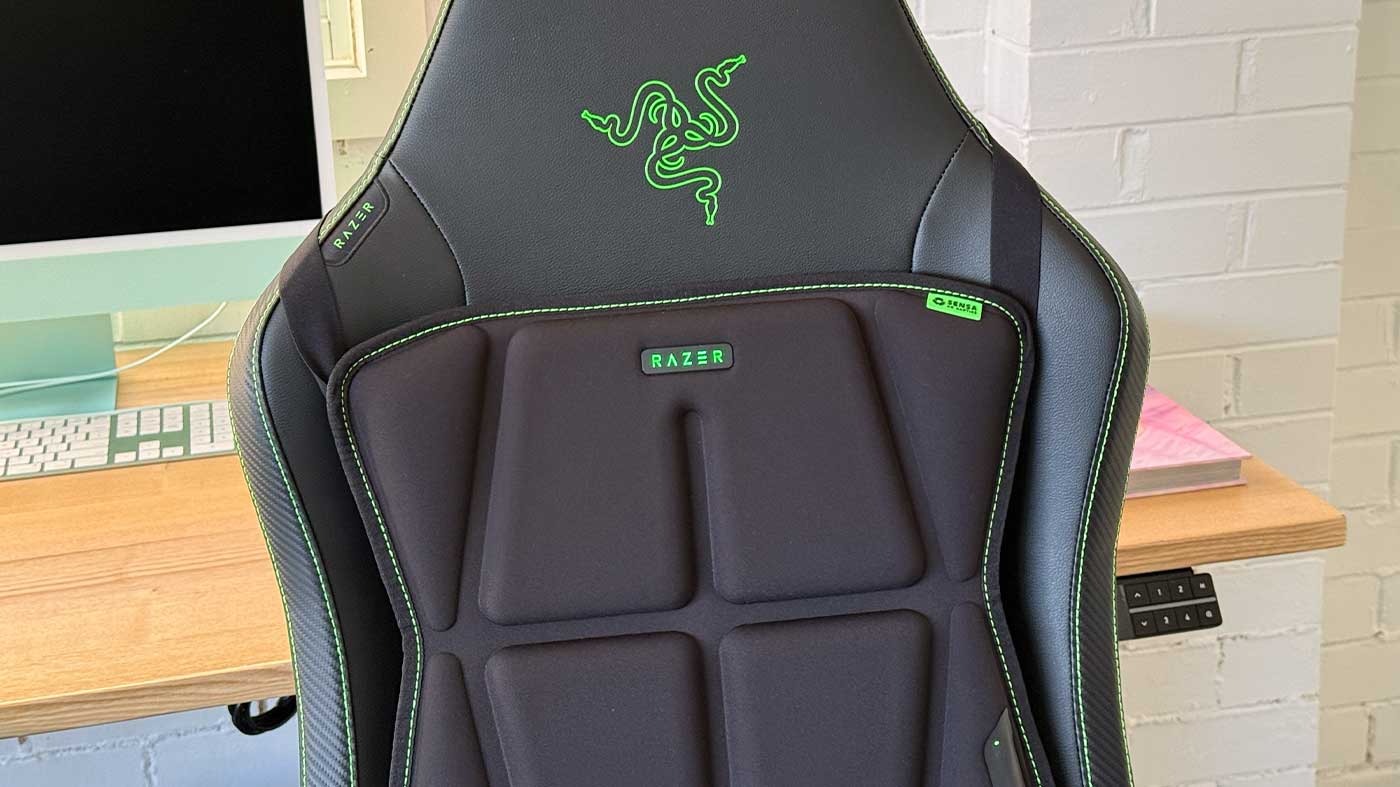
You then simply need to connect the chair to power (the cord is quite short) and then you can either connect using the included dongle or through Android phones via Bluetooth.
THE CHEAPEST PRICE: $549 FROM RAZER STORE
It’s then as simple as either using the onboard controls to cycle through six vibration intensity levels, and obviously you’ll need to use Synapse 4 to get it to sync to your games and control different zones as well.
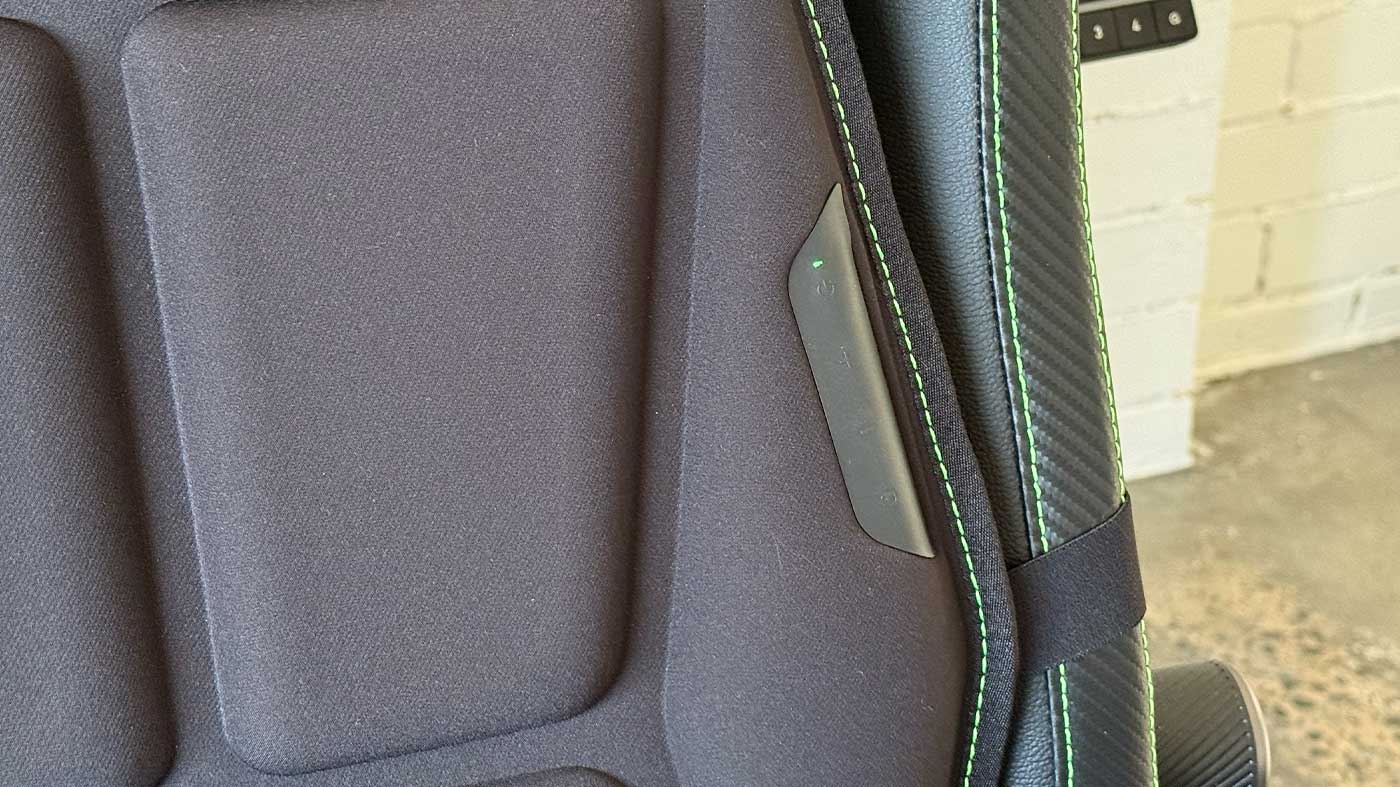
In-built into the Razer Freyja is six haptic motors with four of those being on the mid-upper back and two being larger cushions that are under your bottom, and the easiest way to explain it is like experiencing the PS5 DualSense haptics, but all around your body.
This then can either use Razer Synapse 4 to pull in sound through games or music through your PC, but it absolutely works best with games that have been developed for it including Silent Hill 2, Hogwarts Legacy or Final Fantasy XVI (among a handful of others).
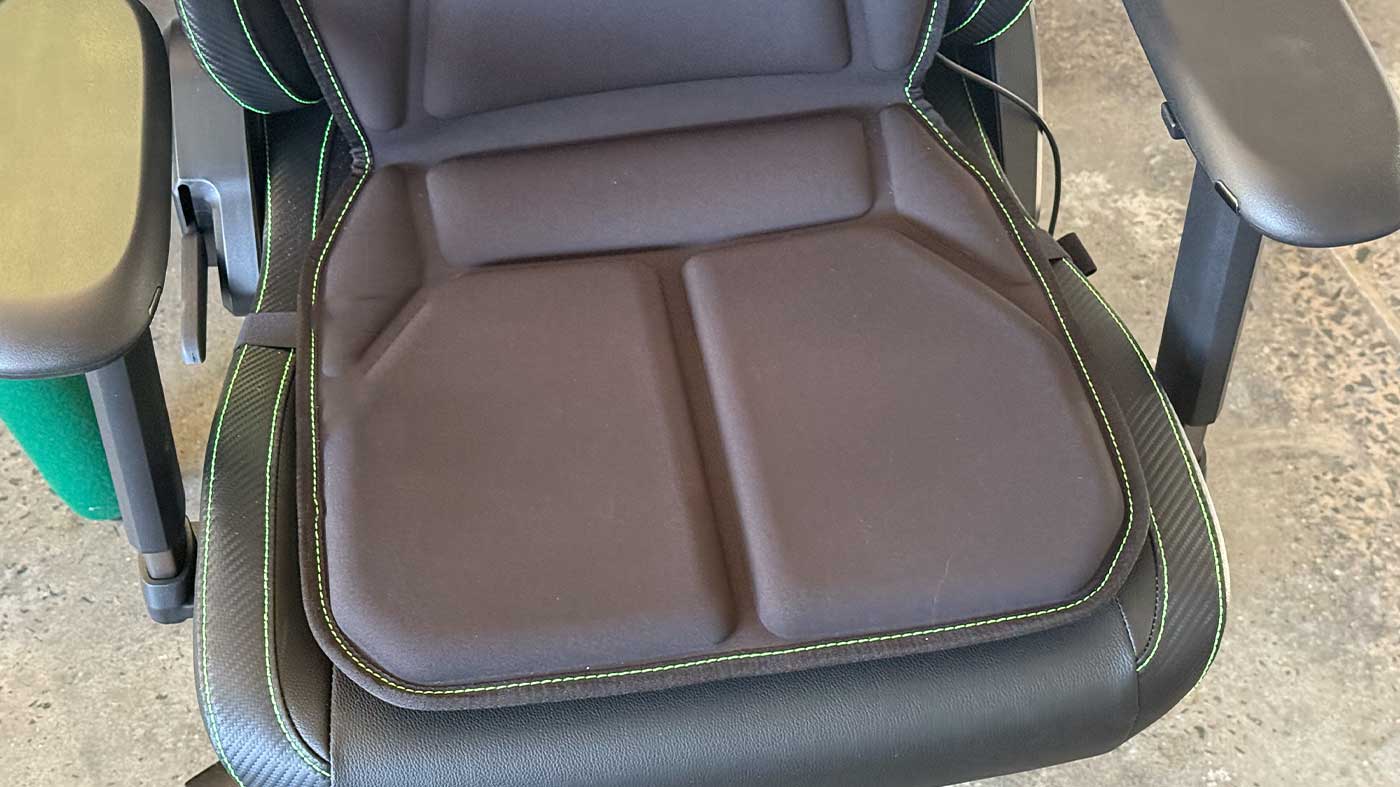
Whilst the standard audio mode does a good job of bringing in vibrations, games that have been developed with Razer Sensa in mind feel much more immersive because they basically only react when you do a certain action rather than going off audio.
For instance, in Hogwarts Legacy, every time you fire a spell, you’ll feel it go through your body with it changing depending on the spell, or in Silent Hill 2, you feel every melee weapon, or every time you open a menu.
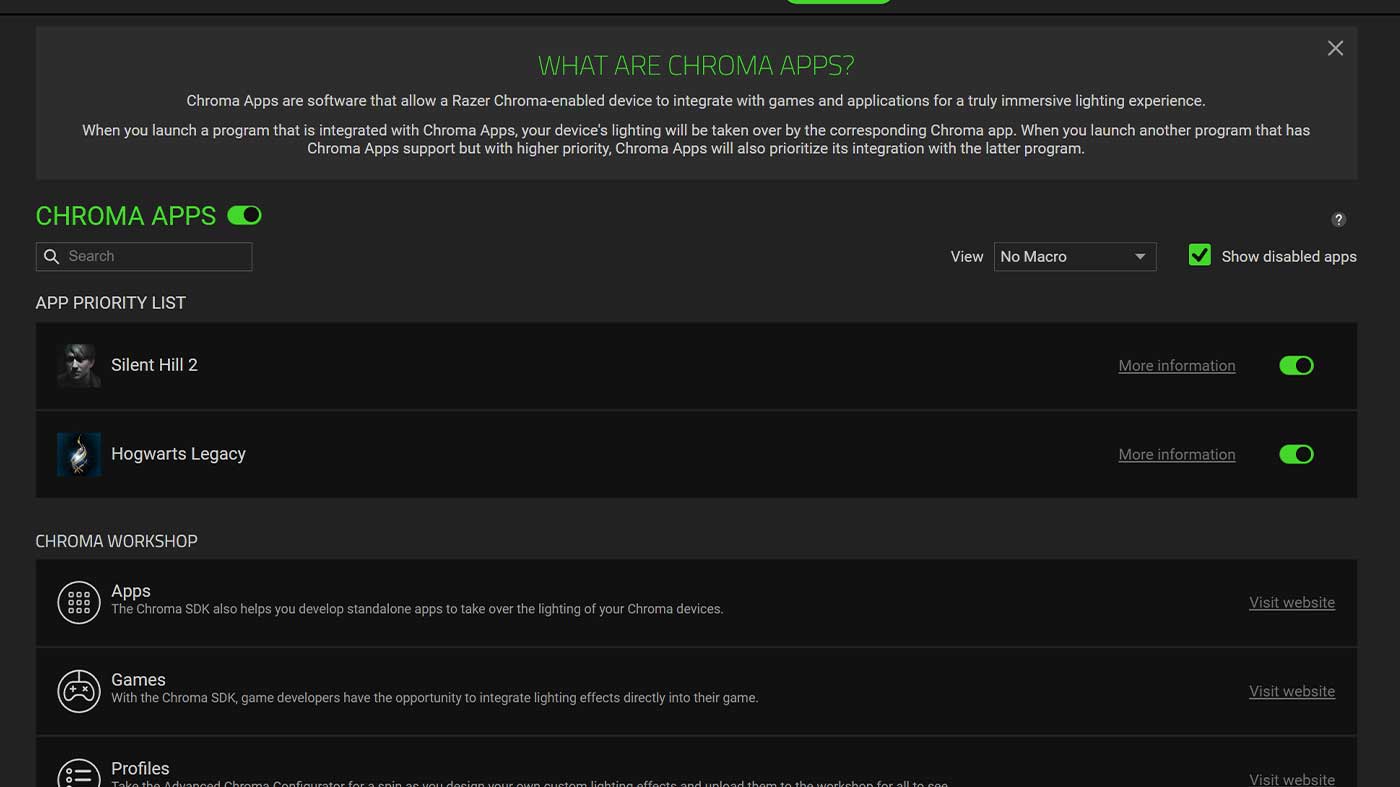
So far, Hogwarts Legacy was absolutely the best use of this. The vibrations that came through Razer Sensa provided a level of immersion that actually gave more weight to the spells being cast.
Synapse 4 does take a little bit of getting used to, in terms of it being a little clunky to make sure that games are enabled to take advantage of Sensa, but there’s also a great level of customisation as well with being able to control each part being really useful for those that aren’t feeling enough vibration in a certain part, or maybe want to drop it off in certain areas.
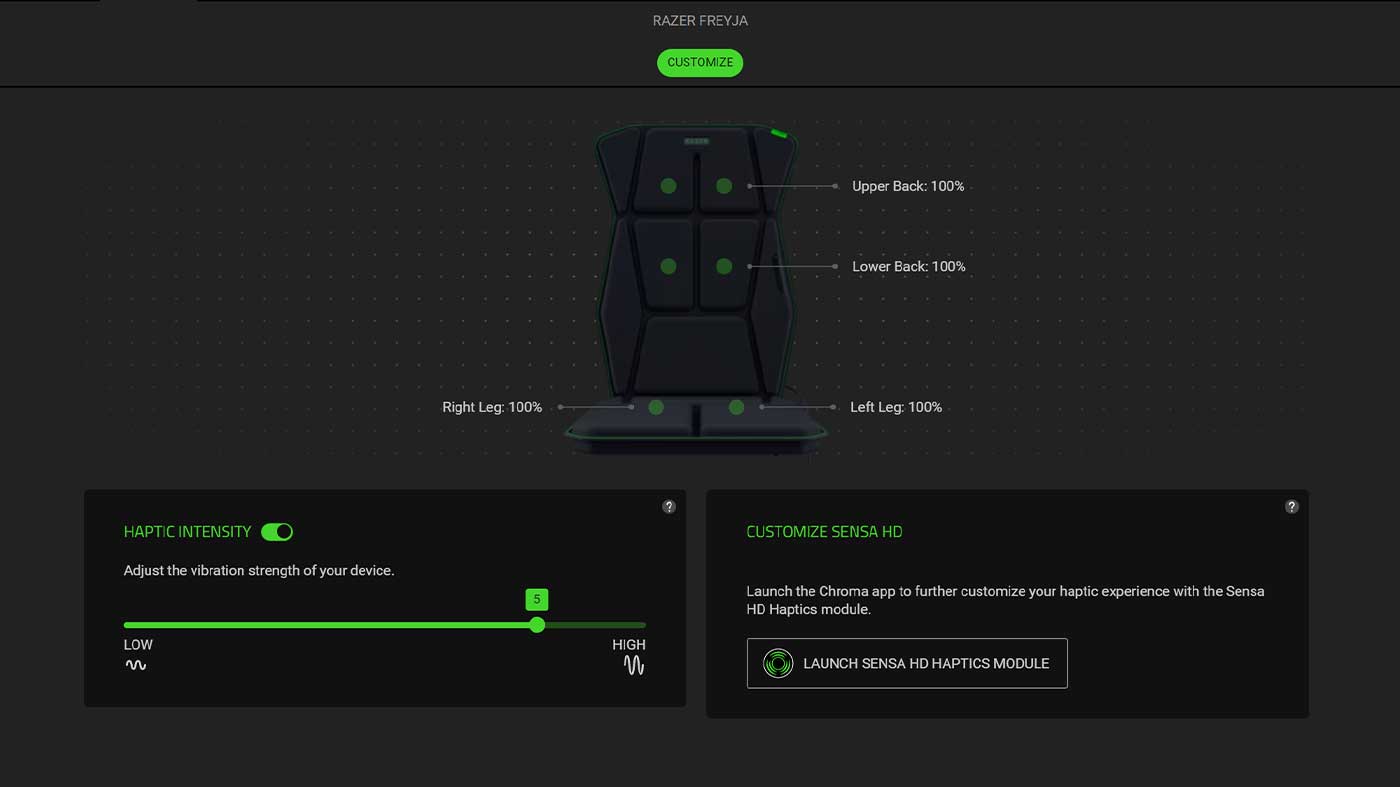
It’s very that Razer is committed to Sensa HD Haptics with the newly released Kraken V4 Pro also taking advantage, so to think that you could have an immersive haptics experience going through your headset, chair and maybe even other peripherals at a later date could be a huge winner.
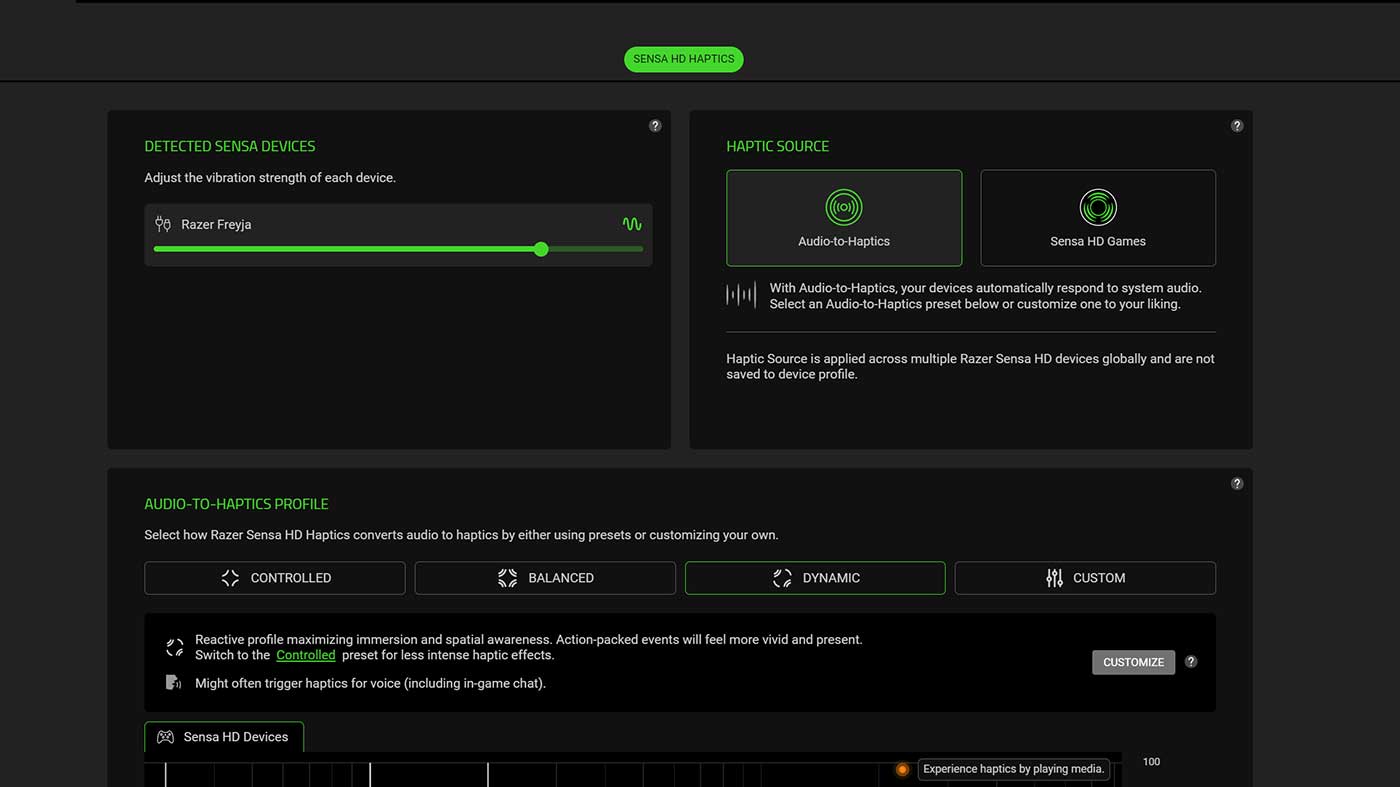
Really though, how great Freyja is long term will be decided by the support by game developers, and with the likes of Square Enix, WB and Konami all supporting so far, hopefully this continues.